Module 2 Unit 4 We can save the animal第1课时课件(共23张PPT)
文档属性
| 名称 | Module 2 Unit 4 We can save the animal第1课时课件(共23张PPT) |
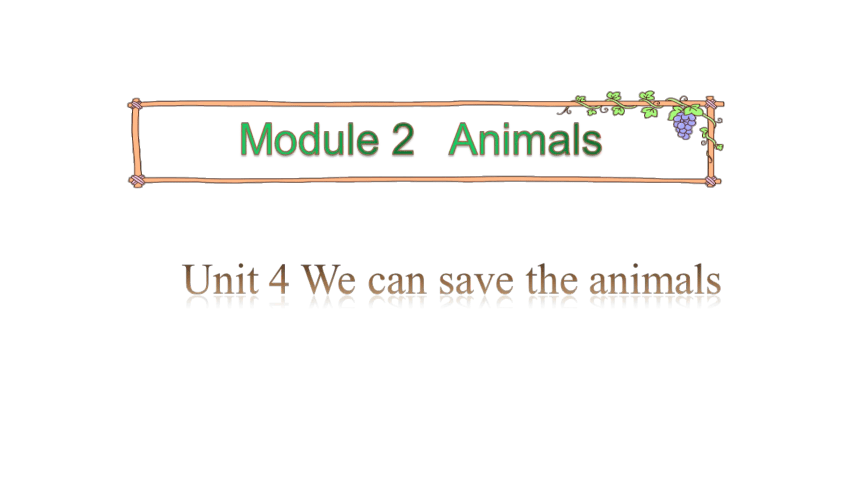
|
|
| 格式 | pptx | ||
| 文件大小 | 6.6MB | ||
| 资源类型 | 教案 | ||
| 版本资源 | 教科版(广州) | ||
| 科目 | 英语 | ||
| 更新时间 | 2021-02-26 00:00:00 | ||
图片预览

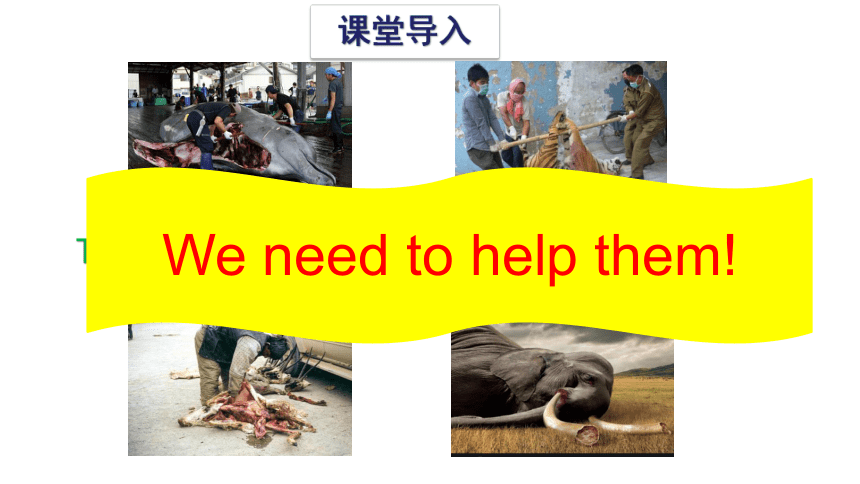
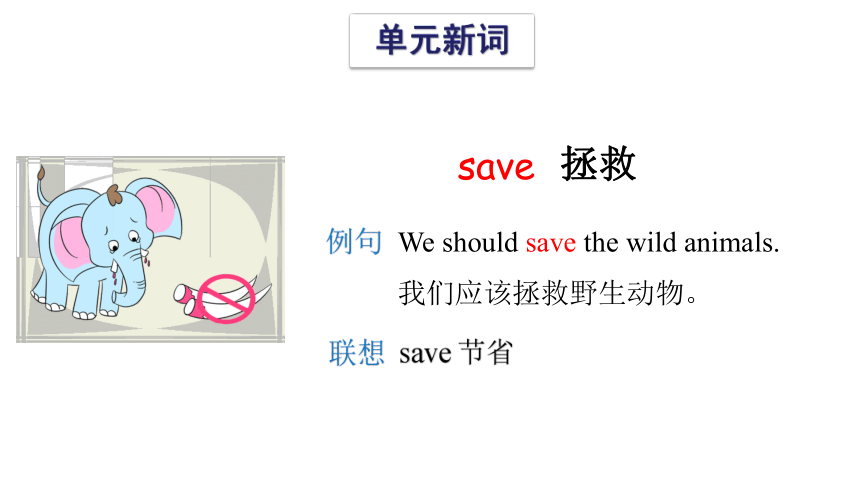
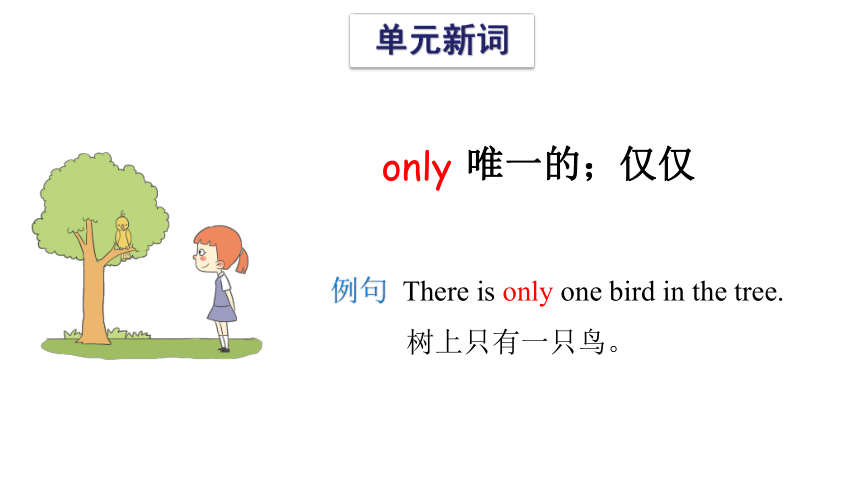
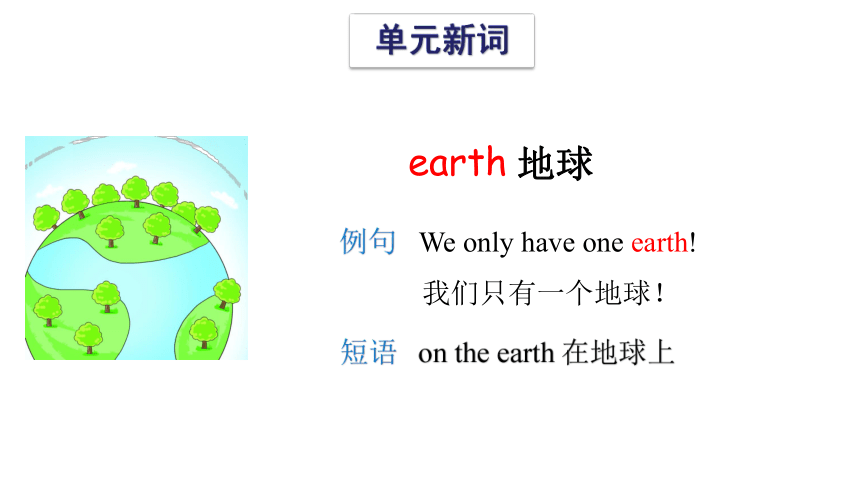
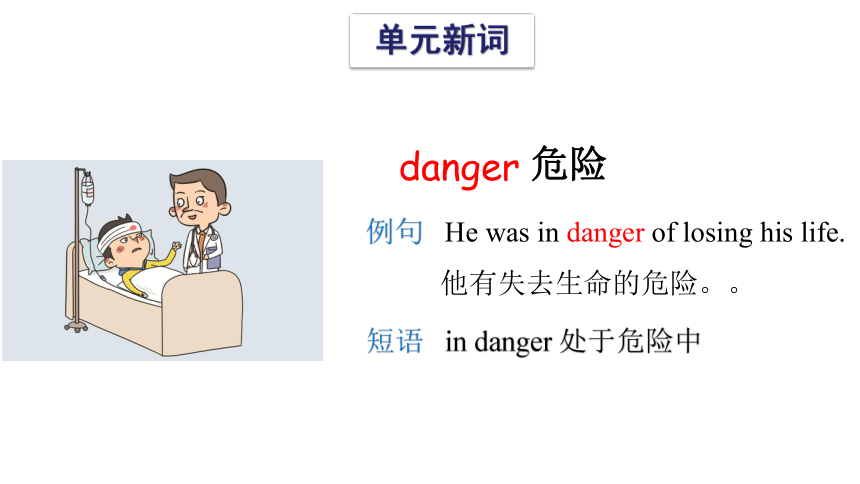
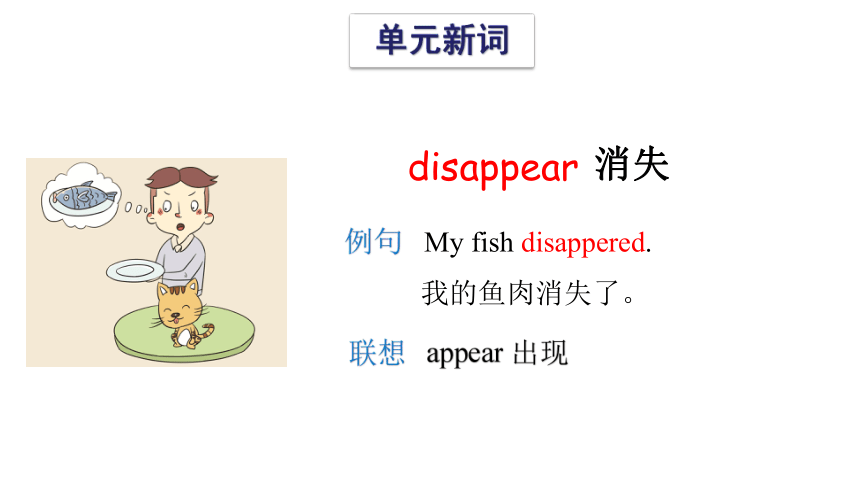
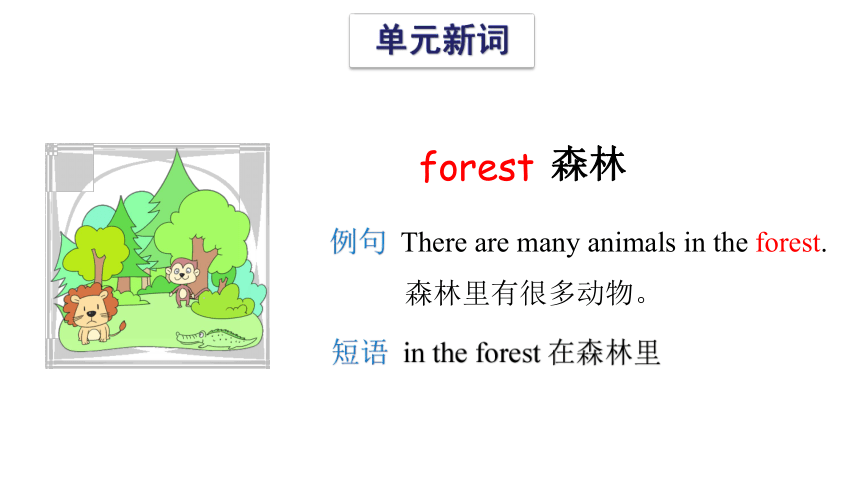
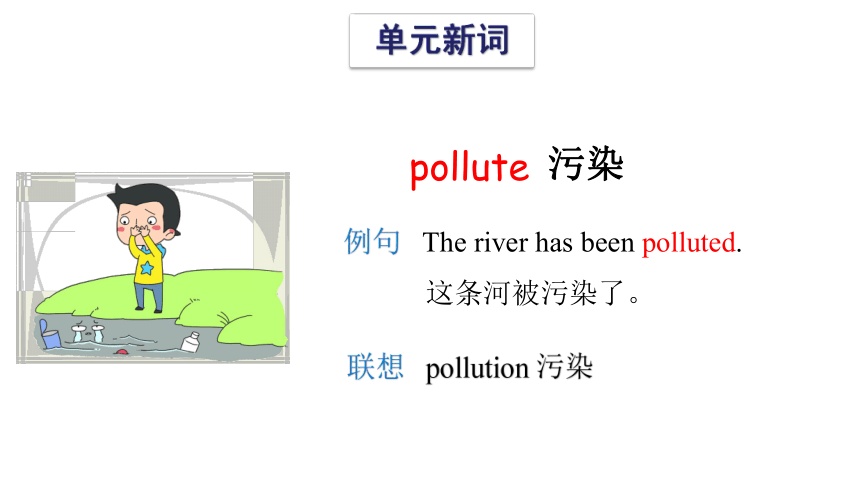
文档简介
Period 1
课堂导入
There are many animals in great danger.
We need to help them!
例句 We should save the wild animals.
我们应该拯救野生动物。
单元新词
save
联想 save 节省
拯救
例句 There is only one bird in the tree.
树上只有一只鸟。
单元新词
only
唯一的;仅仅
例句 We only have one earth!
我们只有一个地球!
单元新词
earth
短语 on the earth 在地球上
地球
例句 He was in danger of losing his life.
他有失去生命的危险。。
单元新词
danger
短语 in danger 处于危险中
危险
例句 My fish disappered.
我的鱼肉消失了。
单元新词
disappear
联想 appear 出现
消失
例句 There are many animals in the forest.
森林里有很多动物。
单元新词
forest
短语 in the forest 在森林里
森林
例句 The river has been polluted.
这条河被污染了。
单元新词
pollute
联想 pollution 污染
污染
例句 They made a cute puppet.
他们做了一个可爱的木偶。
单元新词
made
短语 made from 用……制造
制造(make的过去式)
例句 The purple coat is made of fur.
这件紫色的外套是由皮毛制成的。
单元新词
fur
皮毛
例句 He lives by the sea.
他住在海边。
单元新词
sea
海洋
Let’s read
Read and answer the questions.
(1)What may soon happen to many animals in
danger?
They may all disappear forever.
(2)Why are many animals' homes disappearing?
cut down the forests
pollute the oceans
(3)What things are often made from animals
in danger?
fur coats
made from
People kill foxes for fur.
foods
People kill sharps(鲨鱼) for sharp fin(鱼翅).
What can people do to help these animals?
Never buy things made from animals in danger. plant trees and don't pollute.
Let’s discuss
Would you like to live in a world with no pandas, tigers or whales?
你愿意生活在一个没有熊猫、老虎和鲸鱼的世界吗?
句型 “ Would you like to...?”用于像对方提出建议或邀请,意为 “你愿意…… 吗?”。 其肯定回答为 “Yes, I’d love to.(是的,我愿意。)”;否定回答为 “Sorry.(对不起。)”。
知识讲解
例 Would you like to play basketball with us?
你愿意和我们一起打篮球吗?
If we don’ t do something now, they may all disappear forever!
如果我们现在不做些什么,它们可能会全部永远消失!
本句是由 if 引导的条件状语从句,其句型结构为 “ If we don’ t +动词
原形(+其他),主语+may+动词原形(+其他)”, 意为 “如果我们(不)……,……可能会……”。
知识讲解
例 If we don't go camping tomorrow, I may go to the library.
如果我们明天不去野营,我也许会去图书馆。
随堂练习
一、单项选择。
1. If you love the earth and love the animals, please do _____ it.
A. something to B. something about C. nothing about
2. One problem is that their homes are _____.
A. disappearing B. disappeared C. disappear
3. Whales live _____ the sea, _____ on land(陆地).
A. in; not B. in; no C. at; not
随堂练习
二、判断下列行为是(T)否(F)正确。
( )1. People pour the dirty water into rivers.
( )2. Children plant trees on Tree Planting Day.
( )3. Cut down the forest so we have more places to build houses.
( )4. People buy the medicine made from animals in danger.
( )5. Pandas are lovely. We should save them.
F
T
F
F
T
课后作业
熟读 Let's read 部分。
抄写、背诵单词表单词。
课堂导入
There are many animals in great danger.
We need to help them!
例句 We should save the wild animals.
我们应该拯救野生动物。
单元新词
save
联想 save 节省
拯救
例句 There is only one bird in the tree.
树上只有一只鸟。
单元新词
only
唯一的;仅仅
例句 We only have one earth!
我们只有一个地球!
单元新词
earth
短语 on the earth 在地球上
地球
例句 He was in danger of losing his life.
他有失去生命的危险。。
单元新词
danger
短语 in danger 处于危险中
危险
例句 My fish disappered.
我的鱼肉消失了。
单元新词
disappear
联想 appear 出现
消失
例句 There are many animals in the forest.
森林里有很多动物。
单元新词
forest
短语 in the forest 在森林里
森林
例句 The river has been polluted.
这条河被污染了。
单元新词
pollute
联想 pollution 污染
污染
例句 They made a cute puppet.
他们做了一个可爱的木偶。
单元新词
made
短语 made from 用……制造
制造(make的过去式)
例句 The purple coat is made of fur.
这件紫色的外套是由皮毛制成的。
单元新词
fur
皮毛
例句 He lives by the sea.
他住在海边。
单元新词
sea
海洋
Let’s read
Read and answer the questions.
(1)What may soon happen to many animals in
danger?
They may all disappear forever.
(2)Why are many animals' homes disappearing?
cut down the forests
pollute the oceans
(3)What things are often made from animals
in danger?
fur coats
made from
People kill foxes for fur.
foods
People kill sharps(鲨鱼) for sharp fin(鱼翅).
What can people do to help these animals?
Never buy things made from animals in danger. plant trees and don't pollute.
Let’s discuss
Would you like to live in a world with no pandas, tigers or whales?
你愿意生活在一个没有熊猫、老虎和鲸鱼的世界吗?
句型 “ Would you like to...?”用于像对方提出建议或邀请,意为 “你愿意…… 吗?”。 其肯定回答为 “Yes, I’d love to.(是的,我愿意。)”;否定回答为 “Sorry.(对不起。)”。
知识讲解
例 Would you like to play basketball with us?
你愿意和我们一起打篮球吗?
If we don’ t do something now, they may all disappear forever!
如果我们现在不做些什么,它们可能会全部永远消失!
本句是由 if 引导的条件状语从句,其句型结构为 “ If we don’ t +动词
原形(+其他),主语+may+动词原形(+其他)”, 意为 “如果我们(不)……,……可能会……”。
知识讲解
例 If we don't go camping tomorrow, I may go to the library.
如果我们明天不去野营,我也许会去图书馆。
随堂练习
一、单项选择。
1. If you love the earth and love the animals, please do _____ it.
A. something to B. something about C. nothing about
2. One problem is that their homes are _____.
A. disappearing B. disappeared C. disappear
3. Whales live _____ the sea, _____ on land(陆地).
A. in; not B. in; no C. at; not
随堂练习
二、判断下列行为是(T)否(F)正确。
( )1. People pour the dirty water into rivers.
( )2. Children plant trees on Tree Planting Day.
( )3. Cut down the forest so we have more places to build houses.
( )4. People buy the medicine made from animals in danger.
( )5. Pandas are lovely. We should save them.
F
T
F
F
T
课后作业
熟读 Let's read 部分。
抄写、背诵单词表单词。
同课章节目录
- Module 1 Stories
- Unit 1 Slow and steady wins the race
- Unit 2 Waiting for another hare
- Module 2 Animals
- Unit 3 What animal is it?
- Unit 4 We can save the animals
- Module 3 Famous people
- Unit 5 Dr Sun Yatsen
- Unit 6 Steve Jobs
- Module 4 Good manners
- Unit 7 It's the polite thing to do
- Unit 8 The magic words
- Module 5 Travel abroad
- Unit 9 Where will you go?
- Unit 10 I can't wait to see you
- Module 6 Let's look back
